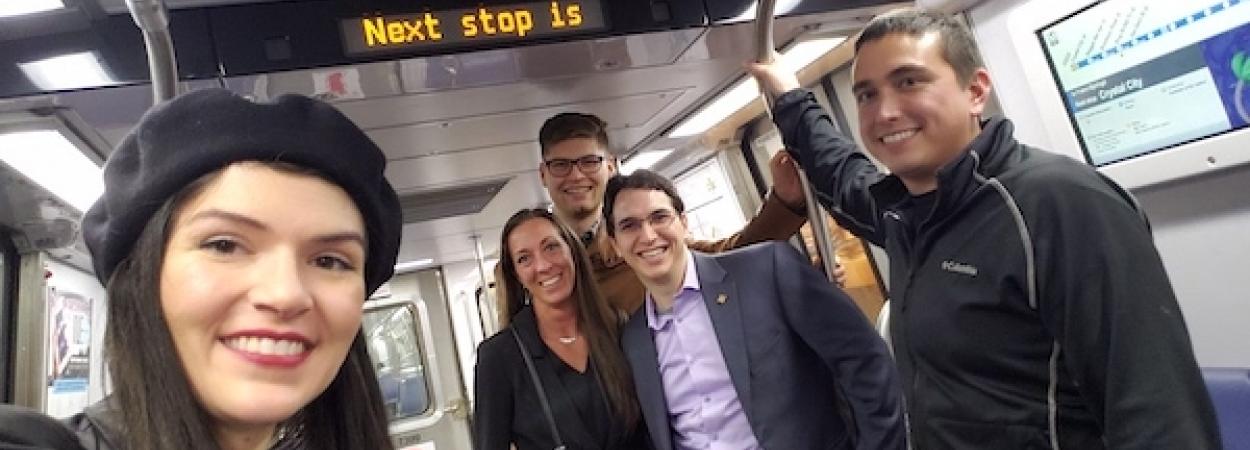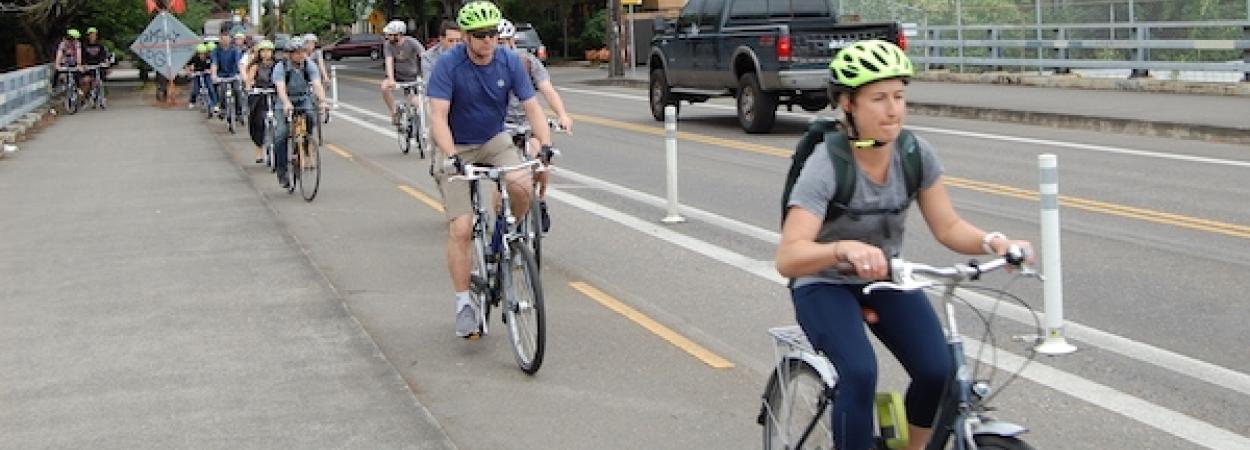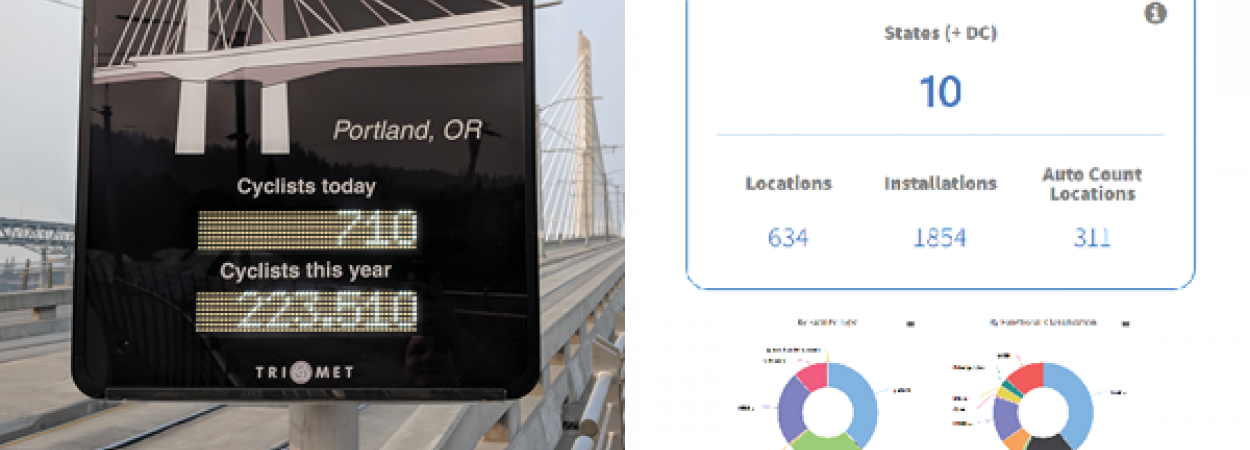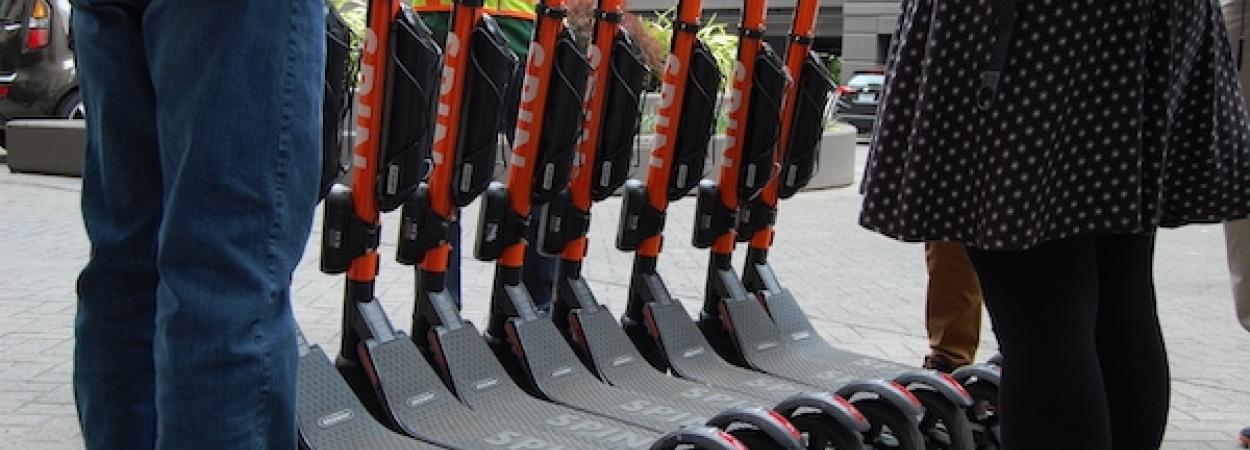 |  |  |

Hau Hagedorn, the associate director of Portland State University's Transportation Research and Education Center and the National Institute for Transportation and Communities, has been selected by the Council of University Transportation Centers (CUTC) and the American Road & Transportation Builders Association (ARTBA) to win the 2020 CUTC-ARTBA Award for Administrative Leadership.
Hau is responsible for the day-to-day management, operations and overall direction of TREC and NITC's peer-reviewed research and technology transfer programs. She also oversees programming and delivery of professional development workshops through the Initiative for Bicycle and Pedestrian Innovation program at PSU. An active participant in national efforts on conducting and implementing research, she serves as co-Chair of both the TRB Condu…
Read More
The 100th annual meeting of the Transportation Research Board (TRB) is coming up next month. Normally held in Washington, D.C., this year's meeting will be virtual and will take place from January 5–29. Transportation Research and Education Center (TREC) researchers will have strong representation in the online conference: 23 Portland State University faculty, staff and students are presenting their expertise at TRB 2021!
VIEW THE ONLINE GUIDE TO PSU AT TRB 2021
DOWNLOAD THE PSU PRESENTATION FILES
Monday, Jan 25, 11:30 AM - 1:00 PM, Driver Yielding and Pedestrian P…
Read More
Subcontract: NCHRP 15-74 Safety Evaluation of On-Street Bicycle Facility Design Features
Sponsor: National Cooperative Highway Research Program (NCHRP)
Research Team Lead: Dr. Bahar Dadashova, Texas A&M Transportation Institute
Investigators: Christopher Monsere, Sirisha Kothuri and Nathan McNeil of Portland State University; and Toole Design Group
In recent years, there have been over 600 bicyclist fatalities annually in the United States. This sobering statistic has motivated a number of recent studies, including the recently released National Transportation Safety Board study, “…
Read More
A national non-motorized count data archive, BikePed Portal provides a centralized standard count database for public agencies, researchers, educators, and other curious members of the public to view and download bicycle and pedestrian count data. It includes automated and manual counts from across the country, and supports screenline and turning movement counts.
BikePed Portal was established in 2015 by Transportation Research and Education Center (TREC) researchers at Portland State University through a pooled fund grant administered by the National Institute for Transportation and Communities (NITC). Other project partners include the Federal Highway Administration, Oregon Department of Transportation, Metro, Lane Council of Governments, Central Lane MPO, Bend MPO, Mid Willamette Valley Council of Gov…
Read More
A new paper in the Journal of Planning Literature by Michael McQueen, Gabriella Abou-Zeid, John MacArthur and Kelly Clifton of PSU took a look at micromobility. The article focuses on the role of new modes like shared e-scooters in the efforts to cultivate a more sustainable transportation system by reducing greenhouse gas emissions, providing a reliable and equitable transportation service, and enhancing the human experience. Their review of the literature shows that the sustainability impacts of these modes are at present mixed, and are likely to remain so without more targeted interventions by local stakeholders. Yet, the operations and use of micromobility systems are quickly evolving and hold promise for contributing to a more sustainable transportation system.
Read the online journal article, or access the…
Read More